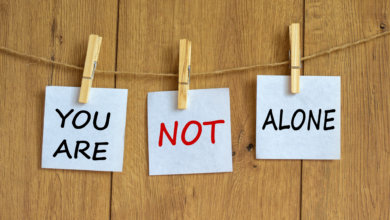Forgiveness, a seemingly simple act, holds immense power to transform lives and nurture well-being. It’s not merely about letting go of grievances or pardoning wrongs; it’s a profound and transformative process. The art of forgiveness touches not only the lives of those we forgive but also our own. In this article, we delve into the multifaceted nature of forgiveness, its psychological underpinnings, and the profound impact it has on our overall well-being.
The Essence of Forgiveness
Forgiveness, at its core, is a release of negative emotions tied to a past offense. It involves a conscious decision to let go of feelings of resentment, anger, and the desire for retaliation. Rather than condoning or excusing the offense, forgiveness is an act of freeing oneself from the burden of holding onto emotional pain.
Understanding the Psychology of Forgiveness
Forgiveness is deeply ingrained in human psychology. It’s a complex process that engages our emotions, cognition, and even physiology. To fully grasp the concept, let’s examine some key psychological aspects of forgiveness:
1. Emotional Release
Forgiveness offers a therapeutic release. It enables individuals to process and let go of the negative emotions tied to a past hurt. By doing so, individuals experience emotional relief and a sense of liberation.
2. Empathy and Compassion
Forgiveness often begins with the ability to empathize with the person who has caused the harm. It involves understanding the other person’s perspective and, in some cases, even feeling compassion for their struggles or pain.
3. Cognitive Transformation
Forgiveness requires a shift in cognitive perspective. It involves reframing the narrative from one of victimhood to one of empowerment. This transformation enables individuals to regain a sense of control over their emotions and responses.
4. Health Benefits
Numerous studies have shown that forgiveness is associated with improved mental and physical health. Letting go of grudges and resentment can reduce stress, anxiety, and depression, leading to better overall well-being.
The Healing Power of Forgiveness
Forgiveness offers a profound path to healing and well-being. Here are some ways in which it contributes to personal growth and emotional health:
1. Improved Mental Health
Letting go of anger, resentment, and hatred through forgiveness can alleviate symptoms of depression, anxiety, and other mental health issues. It leads to a sense of emotional relief and inner peace.
2. Enhanced Relationships
Forgiveness plays a pivotal role in repairing and strengthening relationships. By forgiving, individuals can rebuild trust and develop deeper connections with others.
3. Reduced Stress and Anxiety
Holding onto grudges and harboring anger increases stress levels. Forgiveness can act as a stress-relief mechanism, reducing the emotional and physical toll of chronic stress.
4. Emotional Resilience
Forgiveness nurtures emotional resilience. It equips individuals with the tools to bounce back from adversity, and face future challenges with greater emotional strength.
Practical Steps Towards Forgiveness
Forgiveness is a process that takes time and effort. Here are some practical steps to cultivate forgiveness and, in turn, enhance well-being:
1. Acknowledge Your Feelings
Start by recognizing the pain and anger you are feeling. This self-awareness is the first step towards healing.
2. Empathize with the Offender
Try to understand the offender’s perspective and motivations. Often, this empathy allows for a more compassionate view of their actions.
3. Let Go of Resentment
Release negative emotions by consciously deciding to forgive. Remember that forgiveness is for your benefit, not the offender’s.
4. Set Boundaries
In some cases, forgiveness does not mean re-establishing a close relationship with the offender. It’s important to set healthy boundaries to protect yourself.
5. Seek Support
Forgiveness can be a challenging journey. Seeking support from a therapist or counselor can provide valuable guidance and a safe space to explore your feelings.
Forgiveness is not a sign of weakness but a testament to one’s inner strength. It is a gift you give yourself, a powerful tool for personal growth, and a catalyst for well-being. By understanding the psychology of forgiveness, its healing power, and practical steps, you can embark on a transformative journey that will not only engage your audience but also inspire them to explore the profound and liberating act of forgiveness in their own lives.



